CPS Unit Number 138-03
Camp: 138
Unit ID: 3
Operating agency: MCC
Opened: 10 1944
Closed: 4 1946
Workers
Total number of workers who worked in this camp: 33
-
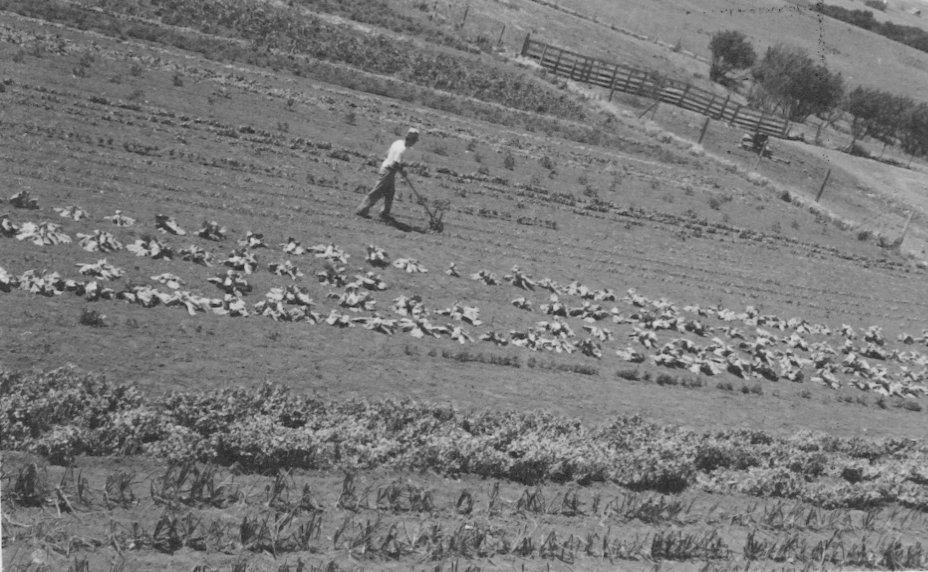 CPS Camp No. 138, subunit 2, Malcolm, Nebraska.Henry Hochstedler cultivating. June 1946.Digital image, Mennonite Community Photographs, 1947-1953: Service. HM4-134 Box 1 Photo 021.1-13. Mennonite Central Committee Photo ArchiveJune 1946.
CPS Camp No. 138, subunit 2, Malcolm, Nebraska.Henry Hochstedler cultivating. June 1946.Digital image, Mennonite Community Photographs, 1947-1953: Service. HM4-134 Box 1 Photo 021.1-13. Mennonite Central Committee Photo ArchiveJune 1946. -
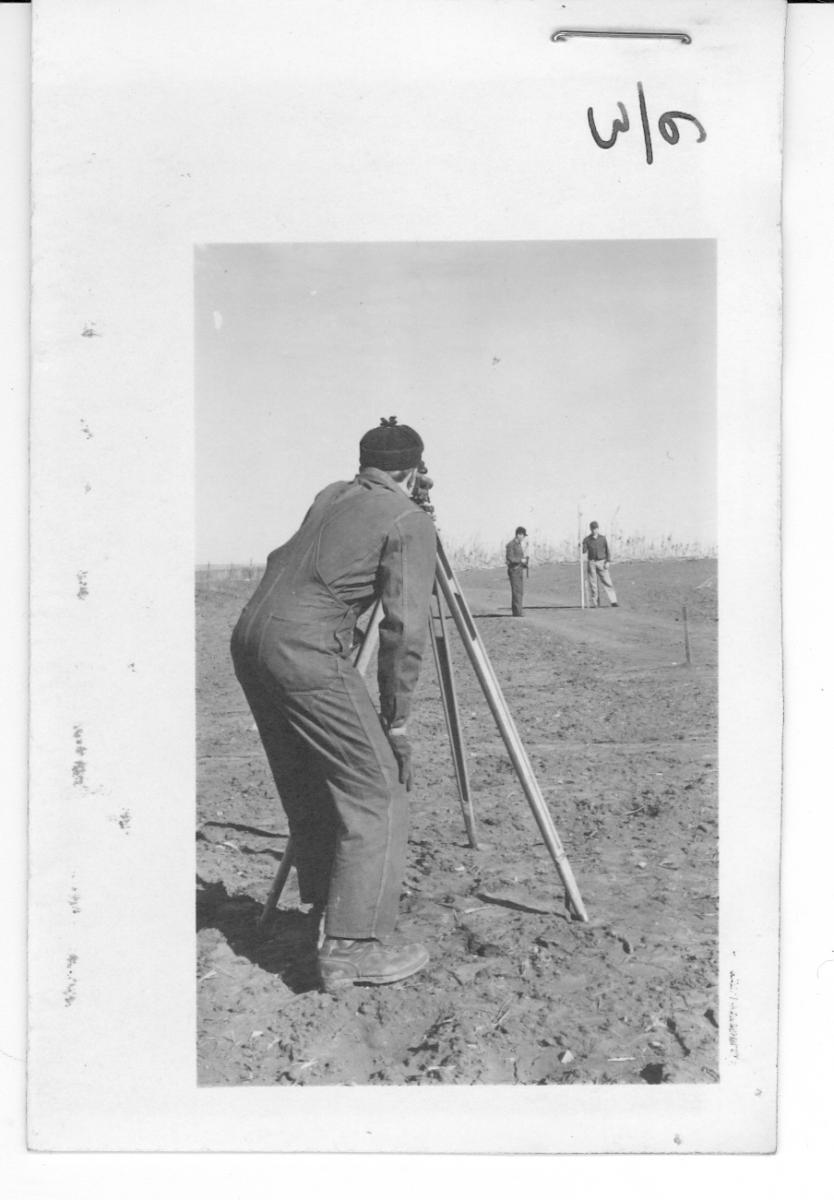 CPS Camp No. 138, subunit 1, Lincoln, Nebraska.CPS men surveying on a farm near Lincoln.Digital image, Mennonite Community Photographs, 1947-1953: Service. HM4-134 Box 1 Photo 021.1-10. Mennonite Central Committee Photo Archive
CPS Camp No. 138, subunit 1, Lincoln, Nebraska.CPS men surveying on a farm near Lincoln.Digital image, Mennonite Community Photographs, 1947-1953: Service. HM4-134 Box 1 Photo 021.1-10. Mennonite Central Committee Photo Archive -
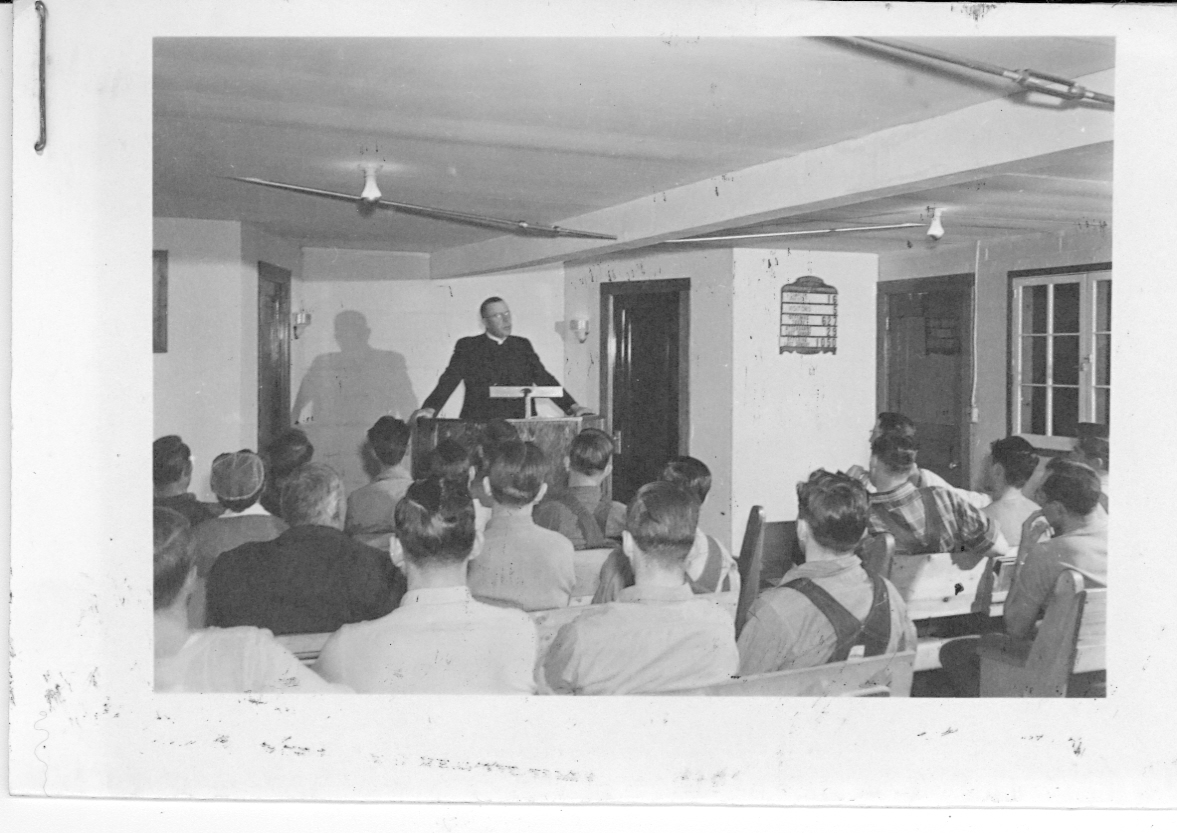 CPS Camp No. 138, subunit 2, Malcolm, Nebraska.Yost from Denver preaching in 1946.Digital image, Mennonite Community Photographs, 1947-1953: Service. HM4-134 Box 1 Photo 021.1-10. Mennonite Central Committee Photo Archive1946
CPS Camp No. 138, subunit 2, Malcolm, Nebraska.Yost from Denver preaching in 1946.Digital image, Mennonite Community Photographs, 1947-1953: Service. HM4-134 Box 1 Photo 021.1-10. Mennonite Central Committee Photo Archive1946 -
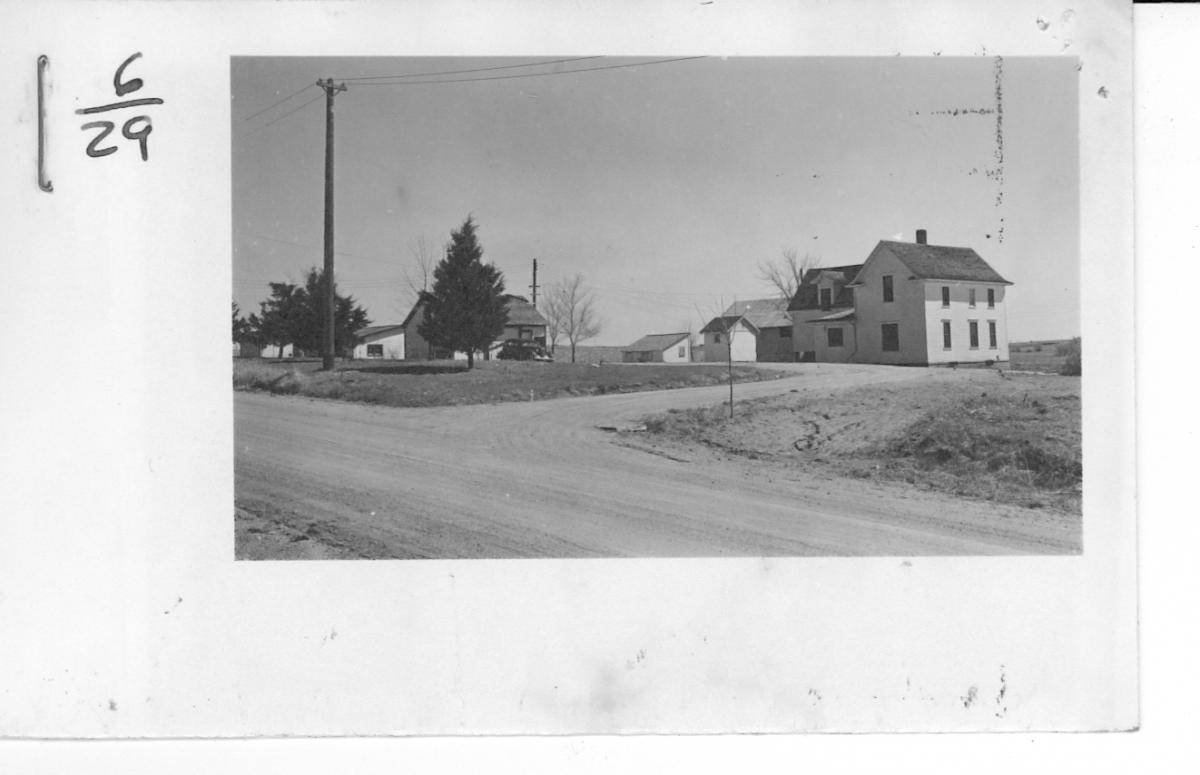 CPS Camp No. 138, subunit 1, Lincoln, Nebraska.View of the camp at Lincoln, May, 1946.Digital image, Mennonite Community Photographs, 1947-1953: Service. HM4-134 Box 1 Photo 021.1-5. Mennonite Central Committee Photo ArchiveMay 1946
CPS Camp No. 138, subunit 1, Lincoln, Nebraska.View of the camp at Lincoln, May, 1946.Digital image, Mennonite Community Photographs, 1947-1953: Service. HM4-134 Box 1 Photo 021.1-5. Mennonite Central Committee Photo ArchiveMay 1946 -
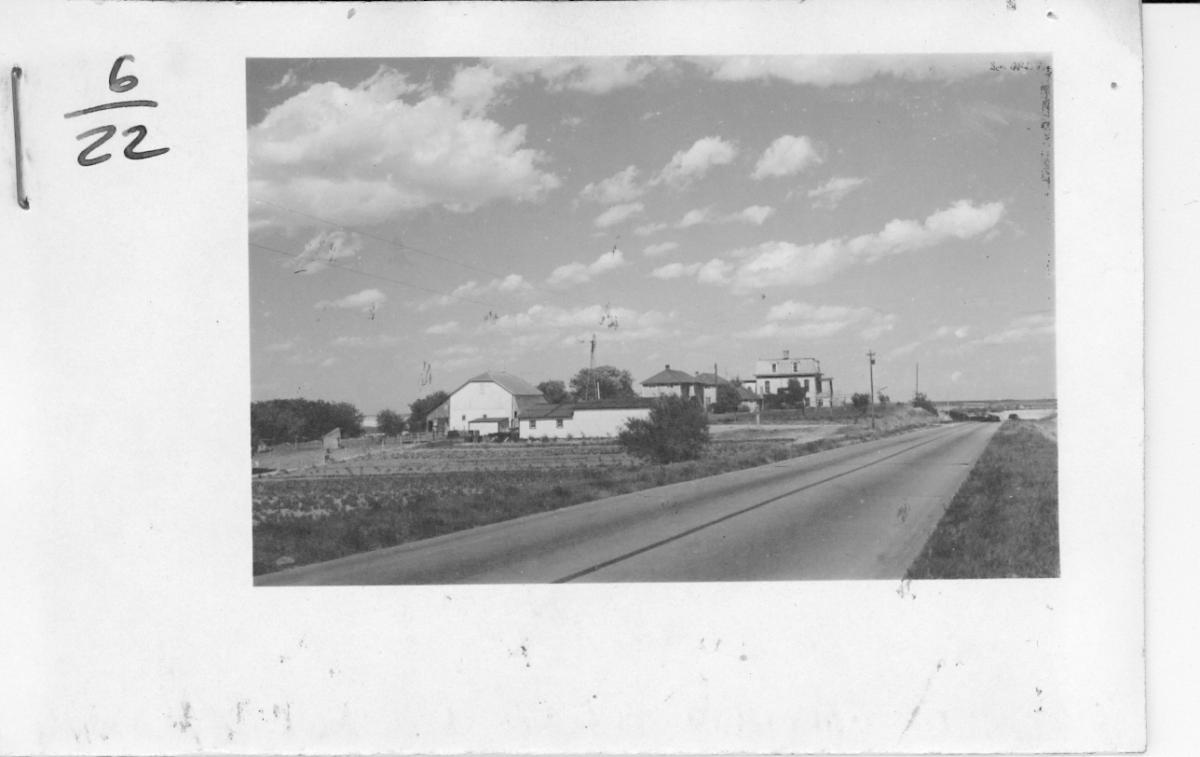 CPS Camp No. 138, subunit 2, Malcolm, Nebraska.View of the camp at Malcolm June, 1946.Digital image, Mennonite Community Photographs, 1947-1953: Service. HM4-134 Box 1 Photo 021.1-5. Mennonite Central Committee Photo ArchiveJune 1946.
CPS Camp No. 138, subunit 2, Malcolm, Nebraska.View of the camp at Malcolm June, 1946.Digital image, Mennonite Community Photographs, 1947-1953: Service. HM4-134 Box 1 Photo 021.1-5. Mennonite Central Committee Photo ArchiveJune 1946. -
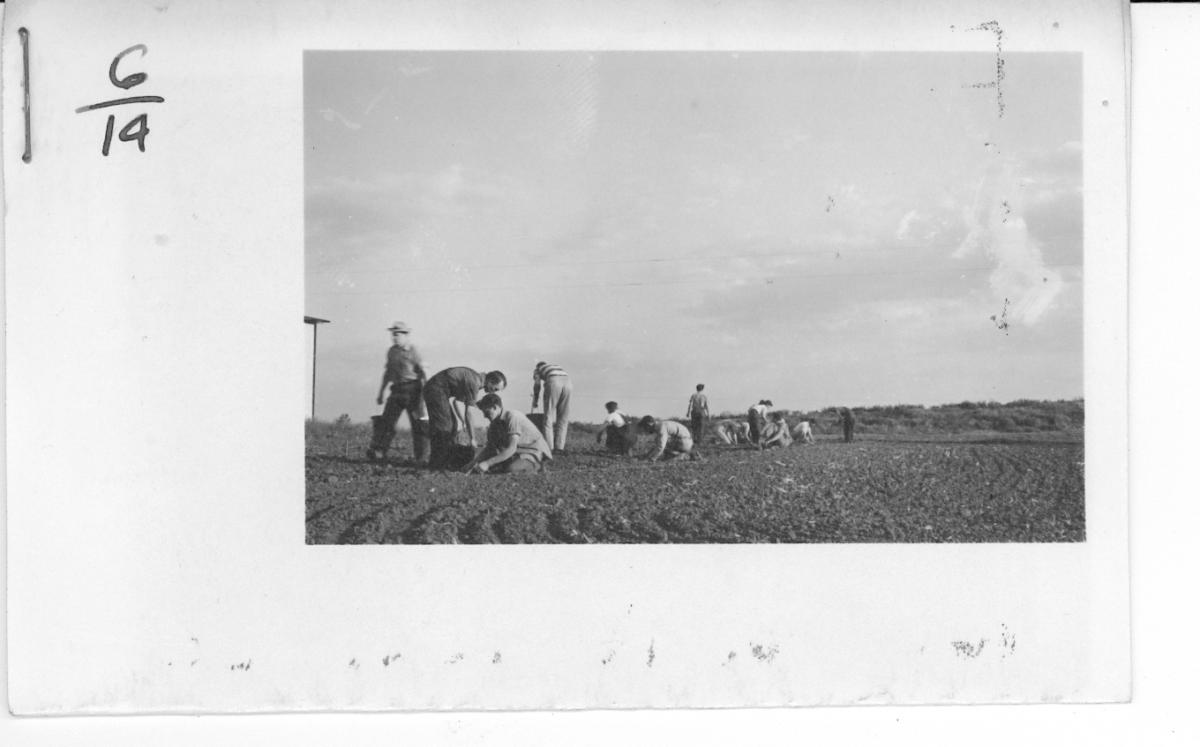 CPS Camp No. 138, subunit 2, Malcolm, Nebraska.1946. Scene at Malcolm Nebraska C.P.S. camp.Mennonite Community Photographs, 1947-1953: Service. HM4-134 Box 1 Photo 021.1-15. Mennonite Central Committee Photo Archive
CPS Camp No. 138, subunit 2, Malcolm, Nebraska.1946. Scene at Malcolm Nebraska C.P.S. camp.Mennonite Community Photographs, 1947-1953: Service. HM4-134 Box 1 Photo 021.1-15. Mennonite Central Committee Photo Archive -
 Philemon Frey PreachingPhilemon Frey preaching at a worship service for conscientious objectors, February, 1946, at Civilian Public Service Camp No. 138, Malcolm, Nebraska. Frey was a conscientious objector in World War 1, and was ordained a Mennonite minister at Archbold, Ohio in 1936.Mennonite Central Committee Archival Photo
Philemon Frey PreachingPhilemon Frey preaching at a worship service for conscientious objectors, February, 1946, at Civilian Public Service Camp No. 138, Malcolm, Nebraska. Frey was a conscientious objector in World War 1, and was ordained a Mennonite minister at Archbold, Ohio in 1936.Mennonite Central Committee Archival Photo
-
 June 1946.
June 1946. -
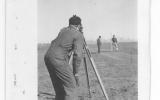
-
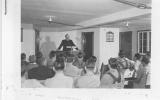 1946
1946 -
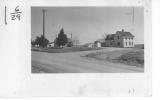 May 1946
May 1946 -
 June 1946.
June 1946. -

-

CPS Camp No. 138 subunit 3 was located near Waterloo, Nebraska, which was twenty miles west of Omaha, one and one-half miles east of the Platte River, and one and one-half miles west of the Elkhorn River. This unit operated by Mennonite Central Committee, opened in spring 1945 as part of an agreement with the Soil Conservation Service to supply fifteen to eighteen assignees to the nursery.
The two buildings of the camp site were located on the nursery grounds, approximately four miles from any town.
Directors: Harold D. Schmidt, Roy Auernheimer, Dale Hochstetler
Fifteen men served in the unit, some married.
Unit men worked in the Soil Conservations Nursery at Two Rivers, Nebraska, a regional nursery supplying young trees to Kansas, Nebraska, South Dakota, Iowa, Montana and Wyoming. The men planted young trees and cared for the nursery stock on the property of one hundred and sixty tillable acres. The work requirements developed and utilized a greater variety of more specialized technical skills, one of the purposes for entering into the agreement.
Some of the men worked on the construction of the camp site. By July 1945, four men served on camp overhead while eleven served in the nursery.
The Soil Conservation Service provided shelter, electricity and heat, while MCC furnished food and medical aid for the men. As in other CPS camps and units, men worked without pay, but received a small monthly allowance.
When representatives of the Mennonites, Brethren, and the National Service Board for Religious Objectors met with regional Soil Conservation Service officials in Lincoln, the religious leaders sought the development of small units that would provide a more highly specialized work program to develop and utilize technical skills and provide a camp atmosphere where men could develop a personal philosophy of Christian community living.
The Soil Conservation Service sought help in areas of greatest concentration of conservation work. Further, H. E. Engstrom, the acting regional conservator participating in the 1944 conversations, declared that public relations would not be a problem, as the public was not only familiar with CPS camp operations, but also had “demonstrated its willingness to cooperate” with the Selective Service in such arrangements. (in Gingerich p. 183)
For information on Mennonite camps and units in agriculture, see Melvin Gingerich, Service for Peace: A History of Mennonite Civilian Public Service. Akron, PA: Mennonite Central Committee printed by Herald Press, Scottdale, PA, 1949 pp. 177-212.
For more information on women COs see Rachel Waltner Goossen, Women Against the Good War: Conscientious Objection and Gender on the American Home Front, 1941-47. Chapel Hill, NC: The University of North Carolina Press, 1997.
For general information on the work and life in CPS camps and units, see Albert N. Keim, The CPS Story: An Illustrated History of Civilian Public Service. Intercourse, PA: Good Books 1990.
See also Mulford Q. Sibley and Philip E. Jacob, Conscription of Conscience: The American State and the Conscientious Objector, 1940-47. Ithaca, NY: Cornell University Press, 1952.
Swarthmore College Peace Collection, Camp periodicals database.